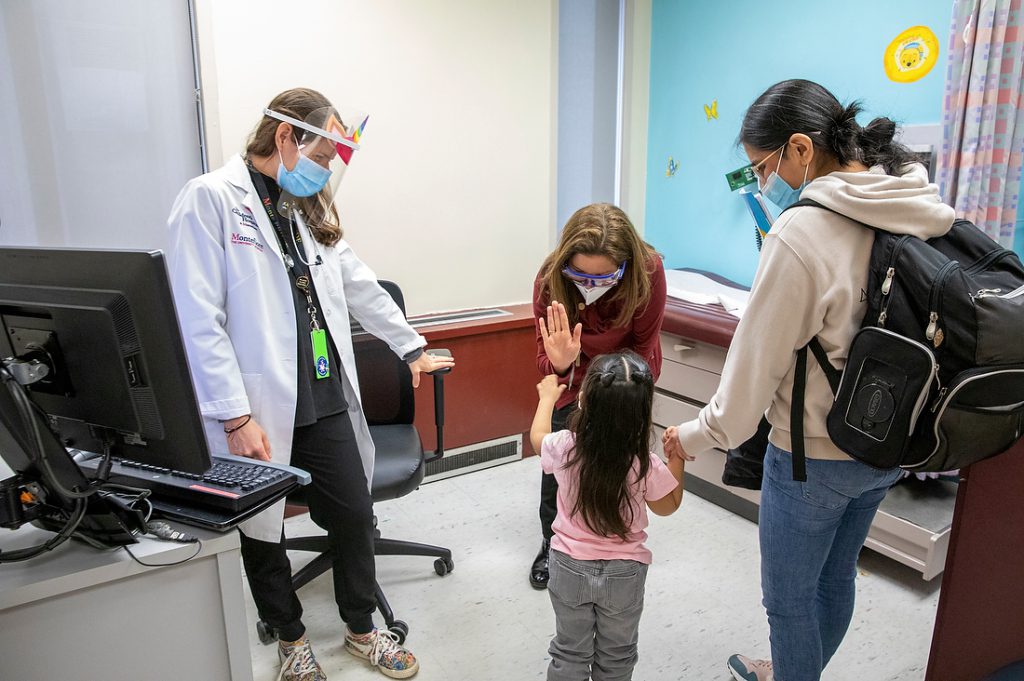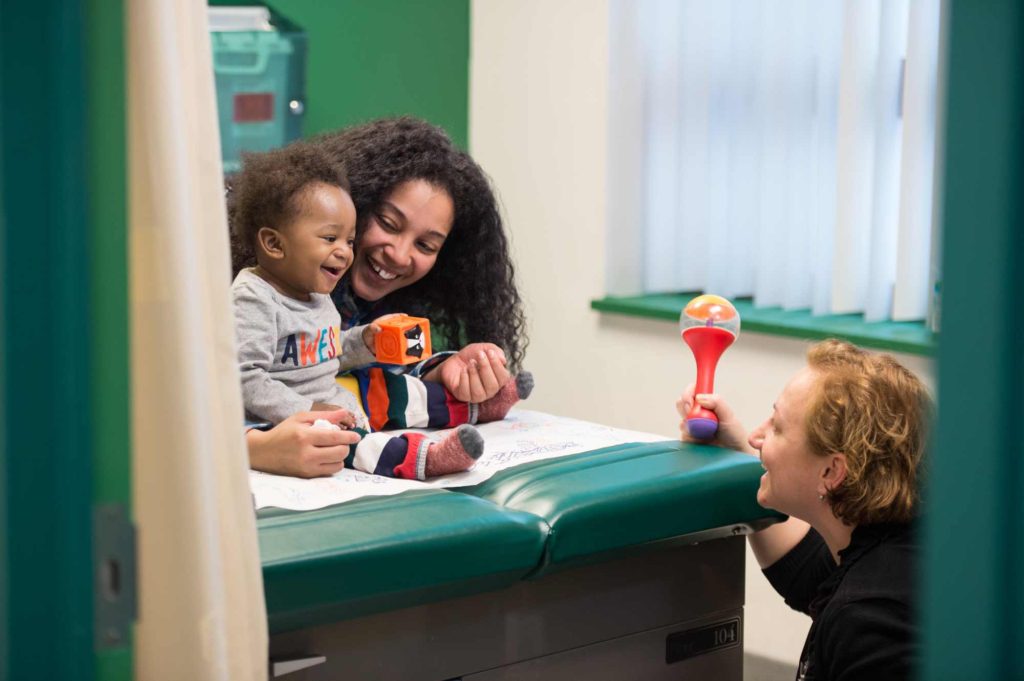The Los Angeles Times recently published an article about how too many children 5 years old and younger in California are not receiving essential, preventative health care.
In fact, 2021 data from the state’s Medicaid program, Medi-Cal, shows that 60% of babies did not get their recommended well-child visits in the first 15 months of life, with the percentage of Black children coming in even higher, at 75%.
These numbers should raise serious alarm bells.
As the article says, children who don’t attend well-child visits are more likely to encounter serious health issues or circumstances. But it also extends beyond physical health. Well-child visits are our country’s single most accessed system of care for infants, toddlers and their families. They’re often where children receive screenings to help catch potential developmental or social-emotional challenges early and connect families with critical early intervention services to set their child up for success. They’re also an opportunity to identify family needs, like food or housing insecurity, and help families identify community resources that can help them meet those needs.
The reasons that children don’t make it to regular well-child visits vary. Per the Los Angeles Times, key factors in the state include a shortage of pediatricians who accept Medi-Cal, transportation issues that make it hard to get to appointments, difficulty getting time off work to take a child to the doctor, and challenges navigating Medi-Cal coverage.
These are not issues that are unique to California, but what is extra concerning is that California is a state that has led the nation in many ways in focusing on young children and the importance of the early years—and a state where 97% of children are insured.
There is no single solution to this problem, but there are ways to move the needle.

For example, ZERO TO THREE’s HealthySteps program, available at 271 pediatrician’s offices nationwide, including 23 in California reaching over 45,000 young children and their families, takes a team-based approach to pediatric primary care. A a child development and behavioral health prevention and promotion expert, the HealthySteps Specialist, joins the team to provide knowledge, skills, and positive encouragement that families want in the earliest years. This can range from talking to caregivers about the importance of regular well-child visits or recommended vaccinations to helping them navigate complex coverage and referral systems to providing positive parenting guidance on common topics like sleep, feeding, tantrums, and more.
Studies show HealthySteps children—most of whom come from families with lower incomes and are covered by Medicaid, CHIP, or uninsured—are more likely to attend well-child visits in the first few years of life, on-time, and consistently see the same provider.
In one study, attendance rates for sites serving high proportions of children with Medicaid were on par with state rates for children with commercial insurance, reducing what is otherwise a persistent gap in care, based on socioeconomic status. We’ve also seen that children in HealthySteps are eight times more likely to receive a developmental screening and are more up-to-date on vaccinations by age 2. And for many of these factors, emerging evidence shows that those positive outcomes hold true, and are sometimes even stronger, when disaggregated by race/ethnicity.
There are many ways that HealthySteps supports healthy development and improves access to care for all children, but the bottom line is: programs like HealthySteps are a smart investment—not only is patient AND provider satisfaction improved, but an analysis done with Manatt Health showed HealthySteps delivered an average 163% annual return on investment for Medicaid. For as low as $50 per child, per year, families and providers can receive the many, many benefits of HealthySteps and avoid bigger issues down the road.
Seems like a no-brainer, right? Especially for practices that serve communities with lower incomes, we need policymakers and philanthropists to step up and make that smart investment.
Learn how you can support our work and help bring HealthySteps to your community.

